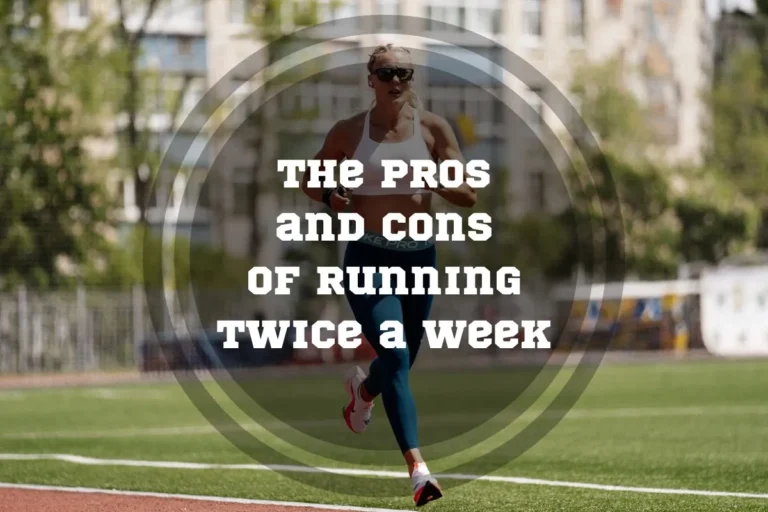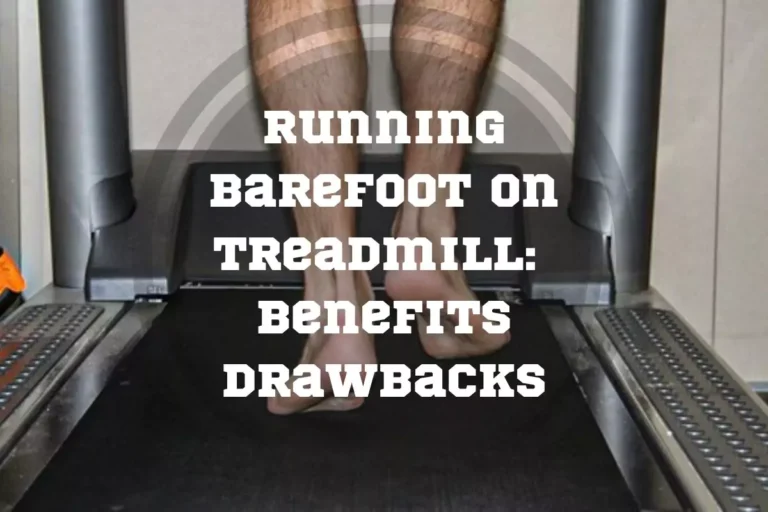Does Running Make You Taller: 5 Effects of Running on Height
Height is a topic of interest for many, and running has been suggested as a potential method to increase it. In this article, we’ll delve into the question of does running make you taller and shed light on the subject of does running increase height.
So, does running make you taller? Running alone won’t make you taller. However, it does promote overall health and fitness, which can contribute to good bone health and proper growth during adolescence, potentially maximizing your height potential.
5 Factors That Affect Your Height
Does running increase height? Height is influenced by various factors, both genetic and environmental. While genes play a significant role, other elements can also impact a person’s height. Let’s explore some of the key factors that affect how tall someone grows.
1. Genetics
Many parents wonder does running make you taller as a kid. As it turns out, genetics plays a crucial role in determining an individual’s height. While genetics alone do not solely determine height, they establish a person’s height potential. Genetic factors influence the growth plates in bones, the production of growth hormones, and the overall structure of the skeletal system. Variations in specific genes can impact the rate and extent of growth, leading to differences in height among individuals.

2. Nutrition
Proper nutrition plays a crucial role in determining height. A well-balanced diet that includes essential nutrients such as proteins, vitamins (especially vitamin D and vitamin C), minerals (like calcium, phosphorus, and zinc), and other micronutrients is vital for optimal growth during childhood and adolescence. Adequate protein intake is particularly important for the synthesis of new tissues, including bones and muscles.
Our Recommendation
NatureWise Vitamin D3 2000iu (50 mcg)
Vitamin D3 is essential for bone health and immune support. This potent supplement promotes optimal well-being with its high-quality formulation, aiding in overall vitality and resilience.
3. Hormonal Factors
During puberty, many individuals are curious about the factors that can influence their height. One common question that arises is, does running make you taller during puberty? The answer lies in the crucial role of the pituitary gland’s production of growth hormone in bone development. This hormone activates the growth plates found in the long bones, which in turn promotes bone lengthening and contributes to overall height increase. Alongside growth hormones, other factors such as thyroid hormones, insulin-like growth factors (IGFs), and sex hormones (estrogen and testosterone) also play a significant role in fostering positive growth and development.
4. Physical Activity
So how does running increase height? Height is positively impacted by physical activity, such as regular exercise and participation in sports like running.
Pro Tip:
Running does a lot for general physical fitness, which helps with improved posture and body alignment, even if it may not directly increase height.
Regular exercise encourages normal growth and development by strengthening the bones and muscles.
3. Sleep and Rest
During sleep, the body goes through important processes, such as tissue repair and the release of growth hormones. These growth hormones play a significant role in bone growth and overall physical development. Consistently getting an adequate amount of sleep allows the body to efficiently utilize these growth hormones, promoting proper skeletal growth and maximizing height potential.
Subscribe to Our Running Newsletter!
Get free running tips from renowned professional athletes and discounts from top-notch brands.
Can Running Make You Taller? Top 5 Real Effects of Running on Height
Many people wonder if running can make them taller. While running doesn’t magically add inches to your height, it does have several effects on your body that can influence how tall you appear. Let’s explore the real effects that running can have on your height.
1. Improved Posture
The more important question is does running improve posture?
When you run regularly, it strengthens the muscles in your core, back, and legs, which are essential for maintaining proper posture.
Stronger muscles help support your spine and keep it aligned, allowing you to stand taller and appear more upright. By practicing good posture during running and carrying that awareness into daily life, you can improve your overall posture, which creates the illusion of increased height.
2. Enhanced Bone Density
When you engage in weight-bearing exercises like running, your bones experience stress and strain. This stress stimulates the production of new bone tissue, making your bones denser and stronger over time. Running promotes bone health by helping to maintain adequate bone density, which is crucial for overall skeletal strength and can provide a solid foundation for your body. By regularly engaging in running, you can contribute to the preservation of bone health and potentially optimize your height potential.
3. Stronger Supporting Muscles
Regular running can lead to the strengthening of various muscle groups, including those in the legs, hips, and abdomen. The repetitive motion of running engages and challenges these muscles, causing them to adapt and become stronger over time. By strengthening these supporting muscles, running provides better support for your spine and overall skeletal structure, helping to maintain a healthy body alignment. This improved alignment can positively affect how tall you appear, as it contributes to a more upright posture and a balanced stance.

4. Improved Joint Health
Running can have a positive impact on joint health, particularly in the lower body. When you run, the joints in your legs, such as the knees and ankles, are subjected to impact and movement. Over time, this repetitive stress can strengthen the supportive structures around the joints, including the ligaments and tendons. Stronger and healthier joints can provide better stability and alignment, which can contribute to a more upright posture.
5. Decompression of the Spine
Many people wonder “Does sprinting make you taller?” When you sprint, the impact and bouncing motions create a stretching effect on the spinal discs, which are the soft cushions between the vertebrae. This stretching action temporarily increases the space between the vertebrae, resulting in a slight lengthening of the spine. Although this effect is temporary and the spine returns to its normal length after running, the brief decompression can give the impression of being slightly taller.
4 Most Common Myths About Running and Height
Throughout the years, several myths and misconceptions have sprung up around the question does running make you taller. Understanding the real connection between running and height requires separating reality from myth. Let’s dispel some widespread misconceptions about how running affects height.
1. Running Stunts Growth
One prevalent myth is that running can stunt your growth and prevent you from reaching your full height potential. This belief likely stems from the misconception that the impact of running puts pressure on your bones and joints, leading to decreased growth. However, this notion is entirely false.
Running has no negative impact on height when done properly and in moderation. In fact, consistent running can help with the growth of strong bones and muscles, which is crucial for maintaining general skeletal health. In addition, some people wonder does running improve posture? Running puts pressure on the bones, which encourages bone development and boosts bone density, improving posture and general body structure.
2. Running Compresses Your Spine
Another common myth suggests that running compresses the spine, leading to a reduction in height. This belief is unfounded. While running may involve repetitive impacts on the spine due to foot strikes, the human spine is designed to handle such forces.
The spine is composed of vertebrae separated by intervertebral discs, which act as shock absorbers. These discs facilitate compression and decompression, maintaining the spine’s flexibility and preventing any permanent compression. Additionally, the natural curvature of the spinal column helps distribute forces evenly, minimizing the risk of compression-related height loss.
3. Running Causes Osteoporosis
Some people are under the impression that running, especially at a young age, might cause osteoporosis and have a detrimental effect on height. This idea, however, is not at all accurate. On the contrary, by strengthening your bones, running can actually help prevent osteoporosis.
Running and other weight-bearing activities regularly promote the growth of osteoblasts, which are the cells responsible for building bone. This improves bone density and lowers the chance of developing osteoporosis later in life.
4. Running Causes Early Closure of Growth Plates
Growth plates are areas of developing cartilage near the ends of long bones that contribute to growth and lengthening during childhood and adolescence. One myth suggests that running can lead to premature closure of growth plates, resulting in stunted height. However, there is no scientific evidence to support this claim.
The closure of growth plates is influenced by various factors, including genetics, hormones, and nutrition, but not by running or other forms of exercise. While excessive or intense training at a young age may temporarily delay growth, moderate running and physical activity have no lasting impact on the timing or closure of growth plates.
Frequently Asked Questions about Does Running Make You Taller
Does running make you taller as a kid?
Running does not directly make you taller as a kid. Height is primarily determined by genetics and the timing of growth plate closure. While running promotes healthy bones and posture, it does not have a significant impact on increasing height during childhood. However, it is essential for overall physical development and can contribute to a strong and well-rounded foundation for growth.
Does running make you taller or shorter?
Running doesn’t make you taller or shorter. Running has no direct impact on bone length or the closure of the growth plates. However, it does encourage bone health, build muscles, and enhance posture, giving the impression that you are taller and more upright. When done appropriately and in moderation, regular jogging provides several advantages for general well-being.
Final Thoughts on Does Running Make You Taller
Today, we seek to answer the question, “Does running make you taller?” To put it simply, running does not make you taller. However, running offers a number of other health benefits, including stronger bones, improved posture, and overall skeletal health. Running is a fantastic exercise choice, regardless of your height aspirations, so embrace the joy of running and let it enhance your life in countless other ways!
Also read:
- Plyometric Exercises for Runners
- How To Tape A Knee For Running
- Why Do My Shorts Ride up When I Run
- Average 3 Mile Run Time
- How to Run a Faster Mile
- Why Do My Ears Hurt After Running
- Coffee After Running
References:
- Nutrition for Growing Bodies // Academy of Nutrition and Dietetics: https://www.eatright.org/food/planning/meals-and-snacks/nutrition-for-growing-bodies
- Growth hormone // Betterhealth: https://www.betterhealth.vic.gov.au/health/conditionsandtreatments/growth-hormone
- What Are Sleep Deprivation and Deficiency? // NHLBI: https://www.nhlbi.nih.gov/health/sleep-deprivation
- Effects of physical activity on children’s growth // ScienceDirect: https://www.sciencedirect.com/science/article/pii/S002175571831026X
- Treatment of Short Stature // Europe PMC: https://europepmc.org/backend/ptpmcrender.fcgi?accid=PMC5754004&blobtype=pdf
If you have any questions or suggestions, you can contact us via email – [email protected]








Thanks to the author for the interesting idea, I hadn’t thought about whether running affects height before. And now I know for sure)